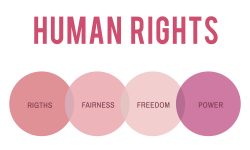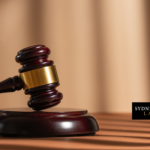Human Rights in Australia: Time for a Change?

By Sonia Hickey
Being detained and questioned, or having your phone lines tapped because intelligence agencies are gathering information sounds like a scene out of a blockbuster movie, right? Cue Tom Cruise operating some sophisticated futuristic technology, and we’re all lining up to buy popcorn.
… But, actually, this scenario could be closer to your everyday life than you think.
Did you know that under the new metadata laws your personal online data is now kept for two years by your Internet Service Provider (eg Telstra or Optus) in case a government agency wants to view it? Or that basic rights and protections such as ‘freedom of speech’, ‘presumption of innocence’ and ‘freedom from arbitrary arrest and detention’ are not actually protected?
These are facts. It is also a fact that Australia is the only western democracy without a Charter or Bill of Rights – a document that spells out human rights in scenarios such as these.
Canada, the United States and South Africa all have legal and political systems similar to ours and they each have a Bill of Rights. New Zealand and the UK have a charter of Human Rights.
So, why doesn’t Australia?
When our Constitution was being debated in the late 1800s, the idea of the Bill of Rights was not seen as important, so it was never adopted. Instead, Australia ‘protects’ our freedoms and safeguards in various other ways.
The Australian Constitution contains five explicit protections: the right to vote, protection against acquisition of property on unjust terms, the right to a trial by jury, freedom of religion, and prohibition of discrimination on the basis of State of residency.
Other protections can be found in common law – which is also sometimes called ‘judge-made law’ to distinguish it from the laws that are made in Parliament.
Along with the Constitution and common law, we also have the Australian Human Rights Commission which is governed by The Australian Human Rights Commission Act 1986. This is a federal agency, responsible for monitoring and promoting human rights protection. However, it does not have power to enforce protections or safeguards.
Only Victoria and the ACT have human rights legislation, although some State laws reflect various human rights principles in their general laws. For example, child protection law will typically default to the ‘best interests of the child’ as the critical consideration in decision-making.
Individuals can complain to the Human Rights Commission about human rights violations … but only if the complaint is about conduct by or on behalf of the Commonwealth. And even if the Commonwealth is found to be in violation of human rights, no Australian court nor the Commission can award a remedy; such as compensation. The Commission only has the power to report to the Parliament with recommendations, and Parliament can discard those recommendations if it wishes. An example of this is the Commonwealth superannuation legislation, which discriminates against same sex couples. And, although the relevant report put forward by the Human Rights Commission must be tabled in Parliament, the Government is under no obligation to adopt them.
Many argue that if Australia had a Bill of Rights, all Australians could better understand their freedoms and protections. It would also mean that if a person felt that their rights had been violated, they could bring the matter to court and have the grievance dealt with in the legal system.
International Human Rights monitors have been encouraging Australia to rethink the way it implements human rights for many years and various recommendations have been made. While changing the status quo is never simple, many who work within the current system see room for improvement.
Receive all of our articles weekly
Author






